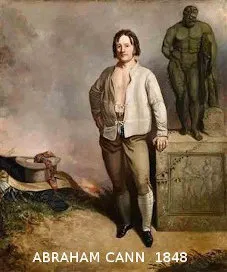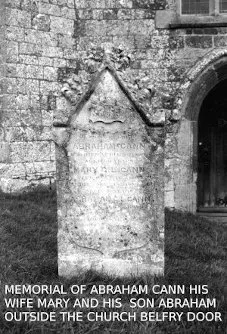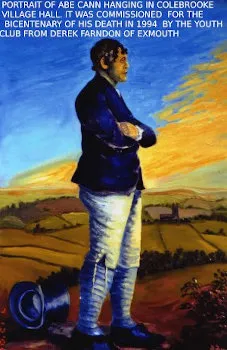Abraham Cann: Devon Wrestling Legend & Champion of All England

Abraham Cann Wrestling 1848
Abraham Cann: The Legendary Champion of Devon Wrestling
Abraham Cann, born in 1794 in Colebrooke, Devon, is remembered as one of 19th-century England’s greatest wrestlers. His unparalleled strength, skill, and sportsmanship earned him the title of “Champion of All England”, securing his legacy as a prominent figure in the history of traditional Devonshire wrestling.
Early Life and Roots in Colebrooke, Devon
Born at Snells Farm and baptized on December 4, 1794, Abraham Cann was the youngest in a family deeply connected to wrestling. From a young age, Cann displayed remarkable talent and dedication to the sport, which would later bring him widespread fame.
By his early twenties, Abraham Cann had risen to prominence as Devon’s premier wrestler, known for his impressive physical strength and technical prowess. His reputation extended far beyond Devon, attracting challengers from across the country.
Family and Personal Life
In 1820, Abraham married Mary Gorwyn, the daughter of local farmer Joseph Gorwyn. The couple settled at Coltsfoot Farm near Eastcoombehead, where they started a family. Sadly, their early years were marked by tragedy, with the loss of their first child, Mary Ann, at just nine weeks old. Despite further hardships, including the loss of additional children, Cann remained committed to his family and his career.
Wrestling Career and National Fame
During his illustrious wrestling career, Abraham Cann became the landlord of The Moreton Inn in St Thomas, Exeter, a hub for wrestling enthusiasts. His title as “Champion of All England” solidified his status as a household name. Cann’s matches drew crowds in cities like London and Leeds, showcasing the traditional Devonshire wrestling style to a broader audience.
Later, he managed The Woolpack Inn, which he renamed The Champions Arms, reflecting his celebrated wrestling achievements. Even amid personal losses, including the death of his wife Mary in 1830, Cann continued to dominate the sport.
The Iconic Wrestling Match of 1841
Abraham Cann’s career-defining match took place on July 27, 1841, celebrating 25 years in the ring. Competing for a prize of 100 sovereigns, Cann showcased his unmatched skill before sustaining a collarbone injury. Despite the setback, his legacy as an undefeated wrestler remained intact.
In 1842, Cann made a triumphant return, defeating a younger opponent and further cementing his reputation. Even after retiring, he remained involved as a guest referee, passing on his expertise to the next generation.

Abraham Cann’s Headstone at Colebrooke
Later Years and Legacy
In his later years, Abraham Cann faced health and financial challenges. A subscription fund organized by his supporters, including contributions from Lord Palmerston, raised £200 to support him. This fund provided a quarterly annuity, enabling Cann to live comfortably at Eastcoombehead with his brother William and housekeeper Susanna Heal.
Tragically, Cann’s son, Abraham Jr., died in a fire in 1862, a loss that deeply affected him. Abraham Cann passed away on April 7, 1864, at the age of 69. He was laid to rest in Colebrooke churchyard, where his headstone honors his legacy alongside his wife Mary and son.

Abraham Cann Painting by artist Derek Farndon
Bicentenary Tribute in Colebrooke
In 1994, to commemorate Abraham Cann’s bicentenary, a commissioned painting by artist Derek Farndon was unveiled in Colebrooke. The artwork, featuring a view of the village, celebrates Cann’s contribution to the sport and his enduring connection to Colebrooke.
Why Abraham Cann’s Story Matters
Abraham Cann’s life exemplifies the values of resilience, dedication, and community pride. His achievements in traditional Devonshire wrestling have left an indelible mark on the sport’s history, inspiring athletes and historians alike.